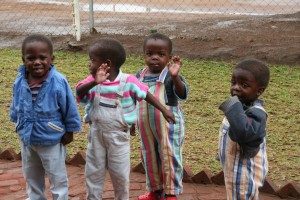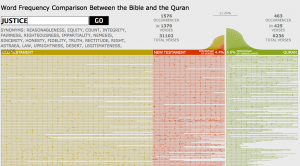extreme poverty
A few things will have to happen for the poverty reduction goal to be hit...India will have to up its game on both economic growth and the distribution of the benefits. As this chart shows, China has mostly run its leg of the relay – with economic growth that has lifted hundreds of millions from poverty and, almost on its own, put the world on trend to reach Kim’s goal.
View interactive charts here.
By definition, an anesthetic is a drug used to relieve pain (analgesia), relax (sedate), induce sleepiness (hypnosis), spark forgetfulness (amnesia), or to make one unconscious for general anesthesia. Anesthetics are generally administered to induce or maintain a state of anesthesia and facilitate a procedure. I believe that anesthetic can be employed as a striking image for particular deficiencies in faith-based responses to extreme poverty.
As one can cite many examples where faith is proclaimed and practiced solely as an escape from – rather than engagement with – the numerous struggles associated with impoverishment, we recognize that anesthesia is incomplete without corresponding acts of sustainable social surgery.
...
A practical way to serve within the tension of anesthetic and advocate is to experience a small portion of life below the poverty line. The World Bank sets extreme poverty as below $1.50 per day, and I plan to stand in solidarity by attempting to eat on less than $1.50 per day over the course of five days (Monday – Friday).
"Do you think he'll sing?" the girl in the row behind me wondered aloud.
"I hope so," the young fellow beside her said before continuing, "My dad would freak. He was a big fan of U2 when I was growing up. He used to play this one album, The Joshua Tree, over and over again."
His father was a fan.
I am a thousand years old, I thought to myself, as more Georgetown students filled the seats around me at the university's 111-year-old Gaston Hall, the main lecture hall on campus named after Georgetown's first student, William Gaston, who later served as a member of the U.S. Congress.
The hall, decorated with stunning art-deco-era frescos and the crest of every Jesuit institute of higher learning, has hosted many dignitaries over the years, including Presidents Obama and Clinton, Vice-President Al Gore, Secretary of State Hillary Rodham Clinton, and Supreme Court Justice Antonin Scalia, to name but a few.
"So if he's not going to sing, is he just going to talk," another student asked, with a distinct whiff of disappointment in his voice.
"I hear he's an awesome speaker, though," still another student said.
The students who packed the auditorium, many of them from Georgetown's Global Social Enterprise Initiative at the McDonough School of Business and more than a few donning black t-shirts with the insignia of the ONE Campaign (of which Bono is a co-founder), weren't sure what to expect from the famous Irish rock star and humanitarian.
A concert? A lecture? Another boring speech?
I'm fairly certain none of the students present for Monday night's event, sponsored by the Bank of America and The Atlantic magazine, anticipated hearing Bono, the 52-year-old lead singer of U2, preach.
But preach he did.
On a recent trip to the African nation of Ghana, Bono of U2 and economist Jeffrey Sachs spoke to the U.K. Guardian newspaper about their hopes for the future of foreign aid.
"There's one thing that might help with aid cynics. Because clearly no one likes the culture of dependency," Bono said. "No one's arguing for it. We're arguing to end it. I think there's something a bit funky about aid as it stands right now. The two most important parties involved in the transaction – the taxpayer who's providing the resources and the person who needs those resources to stay alive or keep their family alive – are the two people who know the least about what's going on. So that has to change."
Some 15 years ago, my aunt and uncle gave me the gift of goat for Christmas.
Let me rephrase: They didn’t give me an actual goat, but they donated a goat — in my honor — to a village in the developing world.
At age 15, I was less than pleased. The plight of starving children and the needs of my indigent brothers and sisters around the globe were far too serious and far too abstract for my selfish teenage brain to wrap itself around.
Today, though, I find myself in the ironic position of wanting to buy goats, mosquito nets, and other items as Christmas gifts in honor of my own family members. This causes me to look back on my selfishness as a teen and see how blind I was to the idea of grace — to the beauty and significance of my aunt and uncle’s gift.
This week, the Senate will vote on H.R. 2354, an appropriation bill that will determine the amount of funds we allocate for poverty-related development assistance. There are a number of amendments proposed that will severely cut this aid, which currently helps millions of the world's poorest and most vulnerable. The bottom 1 percent, if you will.

Less than one percent of the federal budget goes to foreign aid. Our spending on development and foreign assistance is not -- by any stretch of the facts or imagination -- our national debt.
Cutting foreign aid programs will do little to get us out of debt, but would be a devastating setback in the fight against global, extreme poverty.
This morning, as I caught up on what had been going on in the world over the weekend, I stumbled across a very interesting resource -- a website that compares the frequency with which words appear in the Bible and the Quran.
Although that in itself is an interesting tool, I was less interested in the comparison feature and more interested to see how often certain words appear in the Bible.
Earlier this summer I attended a church service where the pastor, a man struggling with what appears to be his final bout with cancer, preached about the hope that Jesus promises to those who trust in him. After describing the returning Jesus brandishing a sword and dripping with the blood of all our vanquished enemies, he invited the audience to share what they saw as the hope that this Jesus promises. The responses ranged from no cancer, to no pain, to no worries about paying the bills, to the promise of an upgraded body -- all of course in heaven someday after we die. The congregation was encouraged to find contentment in the present from the possibility of realizing these promises someday. Our souls are what matter; the body just has to endure until our souls reach heaven. No mention of help with how to pay this month's rent or what it means for a cancer-ridden body to be the temple of the Holy Spirit, just the spiritual promise that someday all will be well.
Some sources have stated that more than 12 million people are being impacted by the worst drought and famine in the region of the Horn of Africa in 60 years.
12 million people.
How do you wrap your head around such a number?
12,000,000
You begin with one.
The World Food Programme, for example, has shared that they can provide a nutritious meal for one person for .17
"My father was born by a river bed and left to die. My mother grew up in extreme poverty. They made it. I am their story, they inspire me!" These are the words of my new friend Rudo, an amazing young woman from Zimbabwe who has come through so much and has now been chosen to be one of a thousand ambassadors of the Make Poverty History Road Trip who next week are acting to make history.


